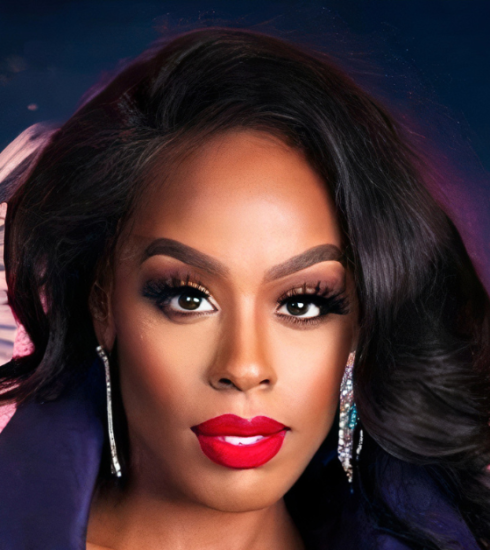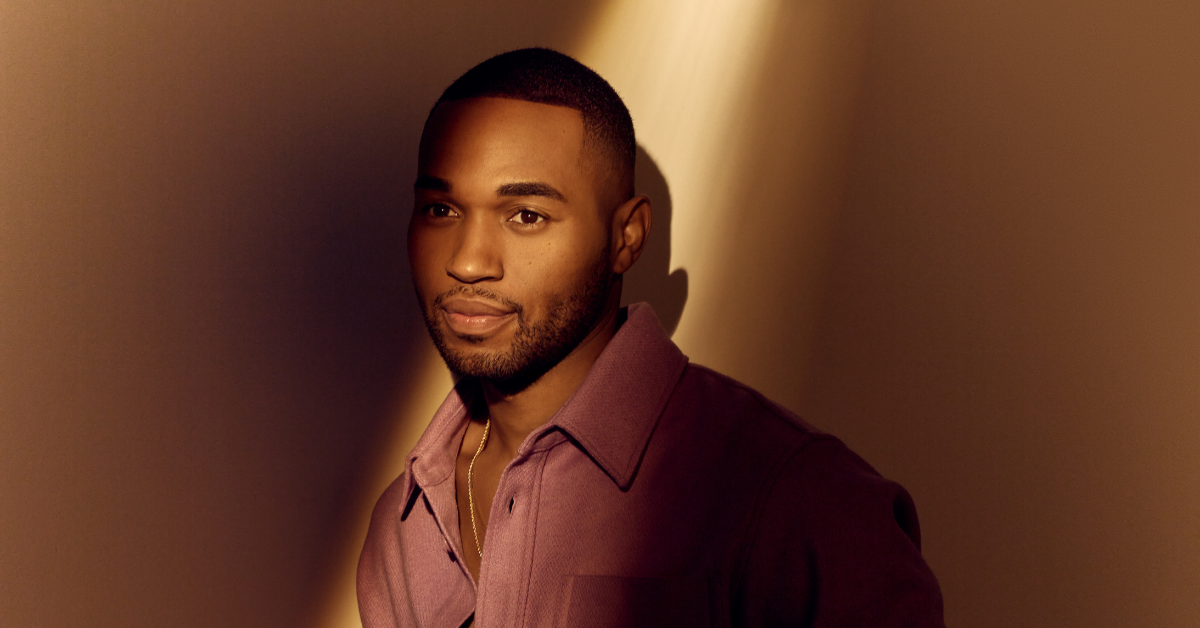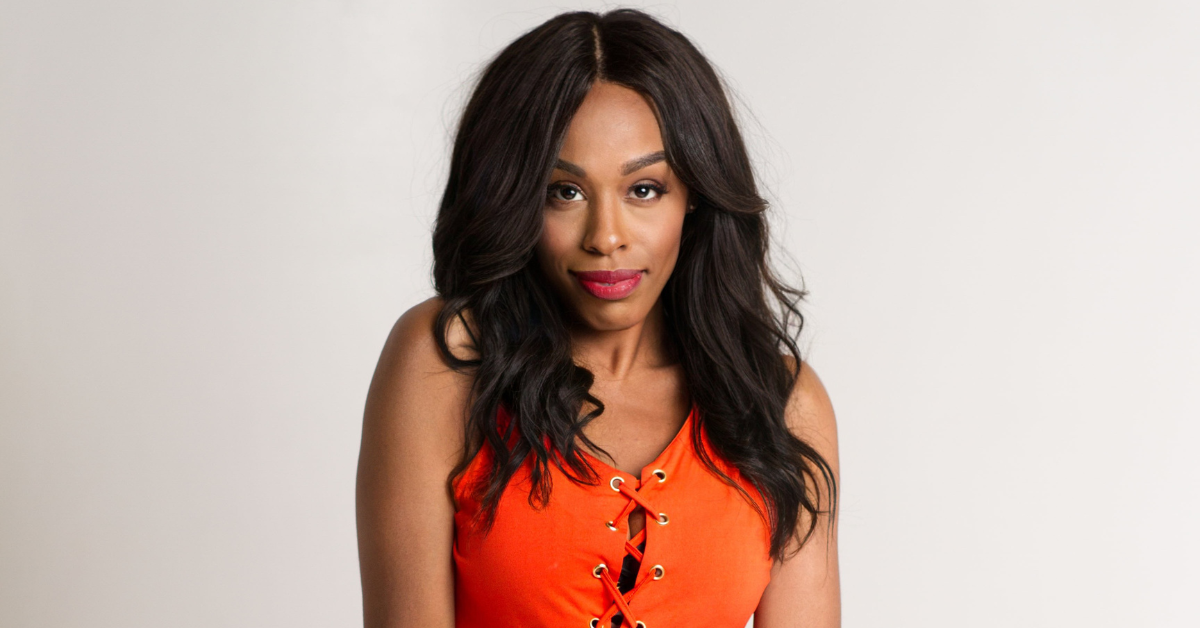Corbin Reid discusses Run the World’s second season on Starz and the importance of authentic Black women’s representation in film and television.
Corbin Reid is returning as Sondi in the second season of Run the World on Starz, and I had the wonderful opportunity to interview her about it. In addition to providing a glimpse of what we can anticipate in the upcoming season, she emphasized the significance of genuine portrayal of black women in movies and TV shows. She advocates having actual people who are portrayed in the film to write and produce shows like hers and others. Corbin feels honored to portray the character of Sondi and be a part of the show Run the World. This is because the show is significant in providing representation for black women on television. This representation highlights the diversity among black women, as they come from various backgrounds. Additionally, there is a shared ancestral connection that is evident in the relationships they form with one another upon meeting.
Cox: Corbin Reid, we are all excited for Season two of Run the World. I want to get right into it with you and know what we should expect from season two compared to season one.
Reid: You know that with season two, you are going to really get to know the characters even better. Like with any first season of a series, you are just barely getting to know the characters. Remember in season 1, we were left off with all the tension and conflict the girls were fighting to come to the surface? It didn’t quite explode.
Cox: Speaking of things the characters went through in season one, what in particular will your character Sondi expand on in season two?
Reid: Let’s revisit what Sondi went through in season one with dating Matthew, her thesis advisor. She was really finding herself as she walked a shadowy line in both her professional and personal lives. She took a massive gamble dating her professor while sacrificing a lot to be this stepparent to his daughter. We saw how she felt taken for granted because Matthew kind of expected her to do all things related to stepparent responsibilities.
You know she is young and has her own aspirations. She didn’t sign up to be a babysitter or be taken advantage of. But this all coincides with her not really understanding what she wants to do in academia.
In the first episode of the new season, you see a new character being introduced, played by Tika Sumpter, who is the mother of Matthew’s daughter. This changes things up a lot for Sondi because she has just gotten used to her role in the daughter’s life and really feels good about pouring into a young Black woman. But this all gets taken away from her immediately with the return of the mother.
Now she is left with her relationship with Matthew and is figuring out if it’s enough. You all will see a couple external elements that come up throughout the season that will ultimately have her make a final decision about whether she should stay.
Cox: It seems like Sondi is in a phase of questioning her life this season.
Reid: She definitely questions things personally and professionally. She is wondering if she should stay with Matthew, if Matthew will want to stay with her, and if she should stay in academia. She has a lot of pivotal moments in this season that will eventually explode, which I think is going to make for great TV.

Cox: I’m curious: Is Sondi the only character going through this?
Reid: I think across the board, you see this happening with all the characters on the show. I think this is what is going to make season two even more fun to watch. There is this elevated experience from season one that you will all love.
Cox: I’m excited for this season, especially after what you just told me. But I want to know how you felt when you first got the script and read about the show and characters. Take me back there?
Reid: When I got the script, I was excited for the show all together. I was like, I know these women. They are my aunt, cousin, and best friend. These characters were written with so much complexity, humanity, strength, vulnerability, intelligence, and good humor. You don’t get many shows where Black women’s characters are written with this level of authenticity. I have to say that’s due to the fact that many of us aren’t in the writer’s room or in the creative executive position when coming up with shows and concepts like this.
I love that in our situation, we had a Black female writer who lived in Harlem who was basically writing a script about her friends. This is what gives the writing a true Black female perspective. I instantly saw that when I read the script. The show and characters were all such a dynamite combination, like a show like Living Single, that I just knew I had to be part of it.
Cox: The show does give us Living Single and Girlfriend vibes. What was it like landing the role of Sondi?
Reid: I actually tested for a couple of the roles, which was exciting. I knew I was going to at least get one role on this show. I felt very serendipitous and had this strong feeling about all of this. And I just have to say that I’m blessed to be able to play a woman like Sondi.
Cox: I want to go back to when you mentioned representing Black women authentically in film. Why do you think there is now a bigger push for shows like yours and others? People are really looking for more shows that show the diversity and complexities of Black women.
Reid: Because there is and has been a deficit when it comes to the roles and opportunities for Black women in business. This isn’t just from an actress standpoint for Black women but also for those in the creative process of it, from writing to producing. This is why you need more Black creative executives who can lend a voice and advocate when things aren’t authentic for Black female characters in shows. They need to step in and say, “No, this isn’t authentic to how she would act or sound.”
Authenticity brings an overall feeling of being fully represented when someone is watching a show. They can genuinely be excited and see themselves in that character. The character speaks to them.
So, to answer your question, this is why people love shows like ours and others like Insecure because we show that there isn’t some cookie-cutter version of what it looks like to somebody else what it is to be a Black woman.

Cox: I think that’s what’s so special about a show like Run the World. You get this group of Black female friends who are diverse and don’t look, act, or think like each other.
Reid: The thing I love about Black women and what I have experienced in my own life is that we could have just met five seconds ago, and there is this instant community and feeling of comfort and family. And when it comes to friends, I think when you have three women who are from such varied backgrounds, you’re just inevitably going to get a different Black woman. From their careers to where they are from, you get these different layers of how they view and move through the world.
Cox: You know, while we are talking about different types of Black women, I just have to bring up the fact that I love that these women are also sexually liberated and aren’t afraid to be selfish and do what they want.
Reid: Those are some of the most beautiful things about this show. To portray a Black woman who isn’t fulfilling some matriarchal role. It’s exciting to see Black women celebrate their sexuality and the joy of it rather than coming from a place of trauma. You know, a lot of times we as women are portrayed as feeling bad for being selfish and choosing ourselves. But in this show, you see women who make decisions based on what is self-serving, and it’s not taken in a negative way. While there is beauty in this, there is also luxury in being able to make selfish decisions. And you get to see three Black women who are on top of their game, making tough decisions while maintaining healthy and beautiful relationships and just being well-rounded people.
Photography Credit
Allen Zaki @allenzaki






